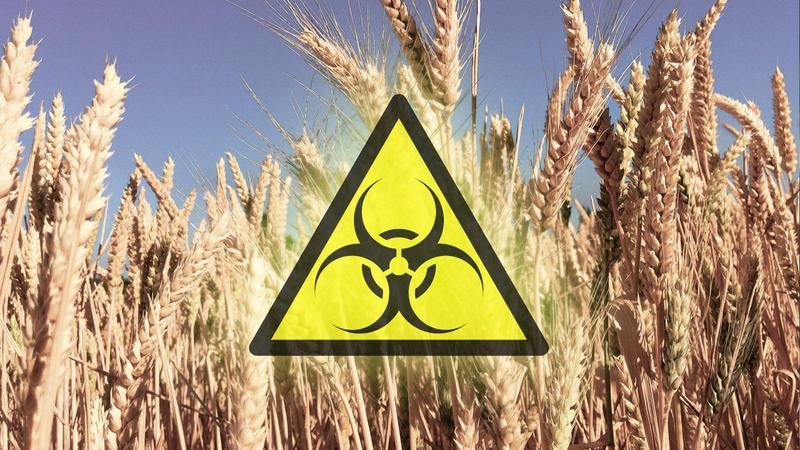A Terrifying Reason Why Everybody Should Avoid Gluten
A Terrifying Reason Why Everybody Should Avoid Gluten
Here we go again with glyphosate, that ubiquitous toxin used as Round Up’s primary ingredient. It’s infamous for the ability to kill weeds, along with all those beneficial micro organisms in the soil and in your gut.
Oh, yeah, and without it, we can’t feed the world… Not true. Despite the sales pitches and propaganda that farmers will use “less” herbicide if they only use GMO seeds, research compiled by Charles Benbrook, Ph.D., proves that the use of glyphosate has skyrocketed after GMO seeds were introduced two decades ago.
“Globally, glyphosate use has risen almost 15-fold since so-called ‘Roundup Ready,’ genetically engineered glyphosate-tolerant crops were introduced in 1996. Two-thirds of the total volume of glyphosate applied in the U.S. from 1974 to 2014 has been sprayed in just the last 10 years.”
Millions of Americans want to avoid glyphosate and believe they are doing so by only purchasing food products that are either labeled organic, or with the Non-GMO Project’s stamp of approval. But according to Ken Roseboro’s Ecowatch report, glyphosate has also been used for years as a pre-harvest drying treatment for crops that are not from GMO seed:
“Along with wheat and oats, glyphosate is used to desiccate a wide range of other crops including l entils, peas, non-GMO soybeans, corn, flax, rye, triticale, buckwheat, millet, canola, sugar beets and potatoes. Sunflowers may also be treated pre-harvest with glyphosate, according to the National Sunflower Association.”
Spraying glyphosate on wheat before harvest began in Scotland in the 1980s
“The pre-harvest use of glyphosate allows farmers to harvest crops as much as two weeks earlier than they normally would, an advantage in northern, colder regions. The practice spread to wheat-growing areas of North America such as the upper Midwestern U.S. and Canadian provinces such as Saskatchewan and Manitoba. “Desiccation is done primarily in years where conditions are wet and the crop is slow to dry down,” Joel Ransom, an agronomist at North Dakota State University, said.”
Millet, flax, oats and peas are not genetically modified. Neither is wheat, yet. And what about barley? I recall years ago, I was told glyphosate was used to dry barley in a German beer that will remain nameless. I changed brands. But, yes, barley is on the list, and more than one German beer is contaminated with glyphosate.
The World Health Organization’s International Agency for Cancer Research labeled glyphosate as a probable carcinogen, as well as the State of California. Here’s an abbreviated list of glyphosate’s damaging and serious effects, as per Roseboro:
“A growing body of research is documenting health concerns of glyphosate as an endocrine disruptor and that it kills beneficial gut bacteria, damages the DNA in human embryonic, placental and umbilical cord cells and is linked to birth defects and reproductive problems in laboratory animals.”
As the dangers of glyphosate are uncovered, how do we know just how much of this herbicide has been applied in the fields of farmers who use it to dry their crops and harvest early? According to Roseboro:
“While the pre-harvest use of glyphosate may account for a small amount of overall use of the herbicide, Benbrook says this still has a huge impact. “It may be two percent of agriculture use, but well over 50% of dietary exposure. I don’t understand why Monsanto and the food industry don’t voluntarily end this practice. They know it contributes to high dietary exposure ”
Only once, in 2011, did the FDA test for glyphosate residue in crops. Our of 300 samples of soy, glyphosate was found in 271 of the samples. Just this year, the FDA announced their intent to begin testing for glyphosate in soybeans, corn, milk and eggs, among others.
Bottom line, what this means is that all of us need to be even more vigilant about the food we put into our bodies.
Be the first to post a message!
